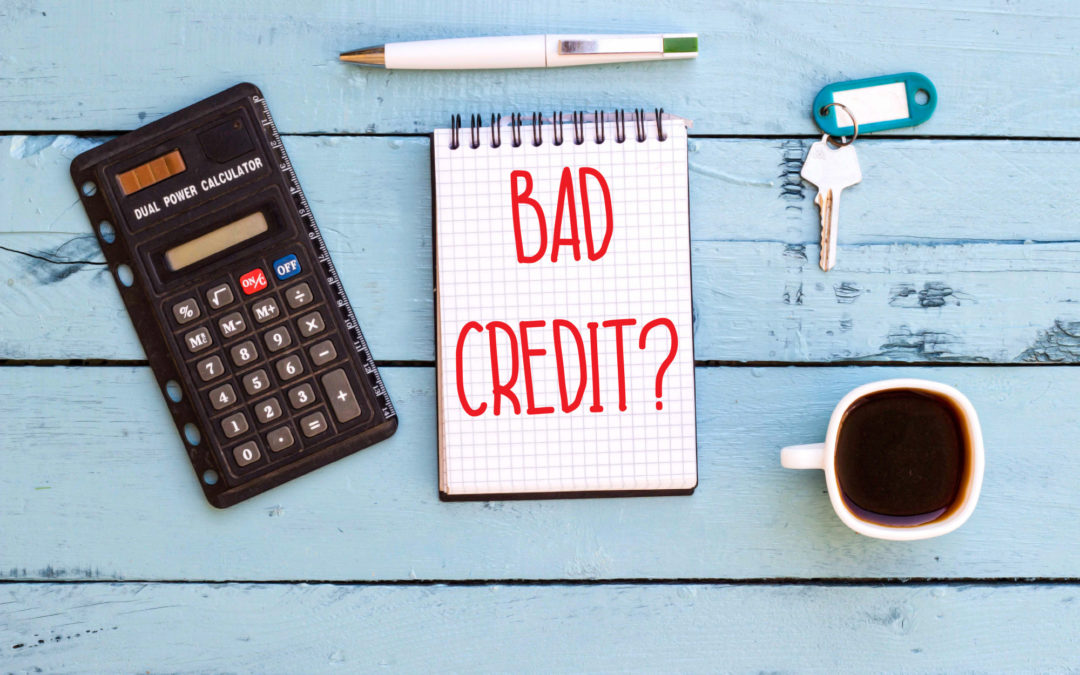Search for “how to repair credit” on Google, and you will find over 727 million results. While that figure is high, it’s not surprising considering that Americans owe about $14.9 trillion to debtors of some type.
Some of that debt is good (homeownership). Much of it is not, and it’s this portion that can tank credit scores. In this article, we talk about how to repair credit, but first, we need a clear understanding of what causes it in the first place.
What Causes Bad Credit?
Before getting into the credit repair steps you need to know, we must first understand the origins of bad credit. Sometimes it’s due to poor decision-making.
Other times, it can be completely beyond your control. Here are five of the most common causes.
Reporting to Collections
You’re behind on a car payment or other consumer loan type. Eventually, you default and the company turns it over to a collections agency. Get ready to see your score drop.
There isn’t a set number your score will drop. It really depends on the size and type of the debt. But it can slash as much as 100 points or more off your overall score.
Late Payments
Late payments may not have the same effect on your credit score that a collection report or bankruptcy has, but it can still do some damage. The good news is that it’s a relatively simple fix, and your score can recover more quickly if you implement it. More on that in a moment.
Too Much Credit and Too Little Income
Some of the most common credit damage comes from having too high of a debt-to-income ratio. That is, a significant portion of your income must go to service ongoing debts.
Additionally, your credit utilization ratio might be too high. This figure is determined by dividing your credit used by available credit.
Examples: you owe $1,000 but have access to $10,000 for a CUR of 10 percent (not bad). Using $4,000 compared to $10,000? That’s a CUR of 40 percent, which means you’ll be seen as more of a credit risk, which is reflected in your overall credit score.
Credit Inquiries
Applying for a loan on a car or home? Don’t be surprised to see your credit score dip a little.
These “hard pulls” indicate that you could be taking on a significant amount of debt. As a result, the score weakens until you make your next move.
If you decide not to apply, the dip you experience will go away relatively quickly. If you do apply, your score will recover as you start servicing the loan, but it could take a further tumble if you’re unable to make the payments on time.
Bankruptcies
Your quickest ticket to bad credit is bankruptcy. Unfortunately, bankruptcies can occur to anyone. Unexpected life expenses, such as exorbitant medical bills or racking up debts caring for elderly parents or a family member’s children, are perfect examples.
These situations are beyond your control, yet you can’t stop them from harming your finances to the point that you cannot afford to live. In these and other cases, bankruptcy is a viable option. Unfortunately, it also craters your credit score by at least a few hundred points, and it can take years before you recover.
So, that’s what causes bad credit. Commit it to memory so you can hopefully play defense and avoid the situations altogether. If you still feel trapped by a nightmare credit report, consider taking these actions to begin the recovery process.
1. Get Your Credit Report
You can’t fix the problem until you know what you’re up against. There are three major credit reporting bureaus, at least for now.
They all use the same scoring system but use different factors and algorithms to arrive at their final tallies. Consider obtaining all three so you know your worst and best scores and how the agencies arrived at them.
Examine the reports line by line, looking for errors. They happen more than you probably think. When you find one, push back.
If the reports are accurate, that’s okay, too. It gives you a clearer idea of the factors that are holding you back.
2. Settle Outstanding Balances
Any debts that you have that can be gotten rid of? Do it! Use your tax refund, extra money from sidebar income opportunities and overtime, or surprise inheritances to pay off balances.
3. Consolidate
Consumer debt is so crushing because much of it is on high-interest credit cards with double-digit APRs. If trapped in that cycle, look into a loan for debt consolidation.
Home equity is a good source for this, as are online lenders. Shop around for the best rates, take the lump sum, pay off all your individual balances, and fall in behind one payment.
4. Set Up Automatic Payments
Most bills now allow for automatic payments. Set those up by your due date, and never be late on a payment again. This one simple act can quickly increase your credit score by several points.
5. Recalibrate Spending
No discussion of credit repair is worth having if spending decisions are ignored. Spending is what often gets consumers crushed by their debt. Luckily, there are ways to lower your bills across the board that we’ll get into in a moment.
For now, you should keep a trained eye on what you’re buying when you go to the grocery store. Additionally, focus on how often you’re eating out, how many times per month you go shopping for something, and other factors that control daily expenses.
6. Negotiate Bills Where You Can
Adjust subscription plans, eliminating anything you don’t use anymore (or don’t use regularly). Consider raising deductibles on your insurance policies or negotiating with your cable company. With a little ingenuity, you can save an extra few hundred dollars a month, which can go towards your debt.
Learning How to Repair Credit Is the First Step to Financial Independence
Figuring out how to repair credit is about more than just getting out of debt. Escaping debt does not correct the overall behavior. To break the cycle once and for all, you’ll want to be working toward financial independence.
Ready to make better decisions with your money or conquer circumstances that have quickly spiraled out of your control through no fault of your own? There are answers. Contact Joe Chavarria today with your credit-related questions.


Recent Comments